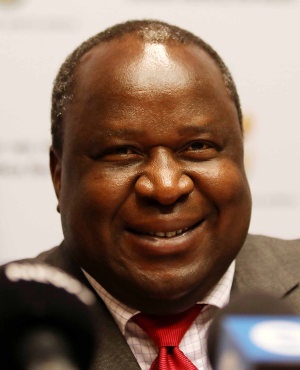Reducing spending is expected to take centre stage in this year’s Budget, but questions remain about where the Finance Minister Tito Mboweni will manage to find money, given the current tough economic climate.
With elections nearly three months away, Mboweni would be under pressure to please the electorate and crack the whip on rising public expenditure which has been repeatedly flagged as one of the top fiscal weak points.
According to Ettiene Retief, Chairman of the National Tax and SARS Committee at the South African Institute of Professional Accountants (SAIPA) the most obvious place to find extra funds is by "cutting huge losses in government itself".
Retief says cost cutting measures should include trimming the exorbitant wage bill and the cost of supporting cash-bleeding state-owned enterprises, among other areas.
"Fix these first," he said.
South Africa has been battling to attract meaningful growth over the last decade, and the World Bank expects real GDP growth to expand by a paltry 1.3% in 2019.
The figure is forecast to jump slightly to 1.7% in 2020 and 1.8% in 2021.
Government has over the past year sought to increase taxes, including VAT, which in 2018 was hiked from 14% to 15%, as government scrambled to raise money in the midst of a shrinking personal income tax base.
However, Retief believes that there may still be some "wiggle-room with other taxes".
"These include adjustments to high ticket or luxury items, reducing tax allowances and deductions, and possibly extending its attack on estate planning and the use of trusts," he said.
He added that indirect taxes, such as sin tax might see further increases, as well as the Road Accident Fund and fuel levy.
"One would expect that the new Carbon Tax, scheduled to come into effect from 1 June 2019, will not be postponed further."
He stated that, in an election year, the pressure would be on to allocate money to fund the various initiatives, policies and promises made, such as national health and free education.
Mboweni, who took over from Nhlanhla Nene as finance minister in October 2018, will deliver his first National Budget on Wednesday, following the Medium Term Budget Policy Statement which he presented a few weeks after his appointment.



